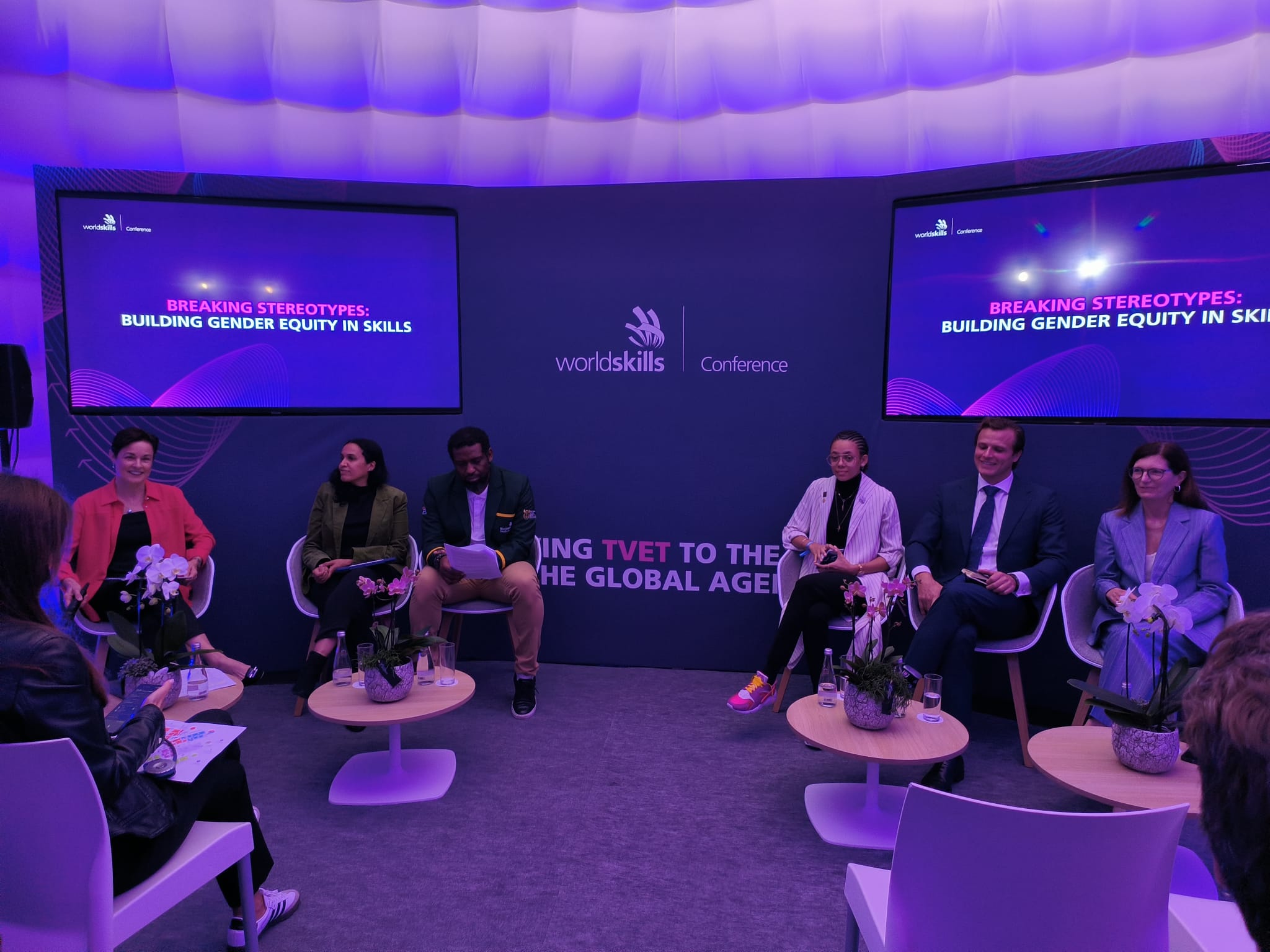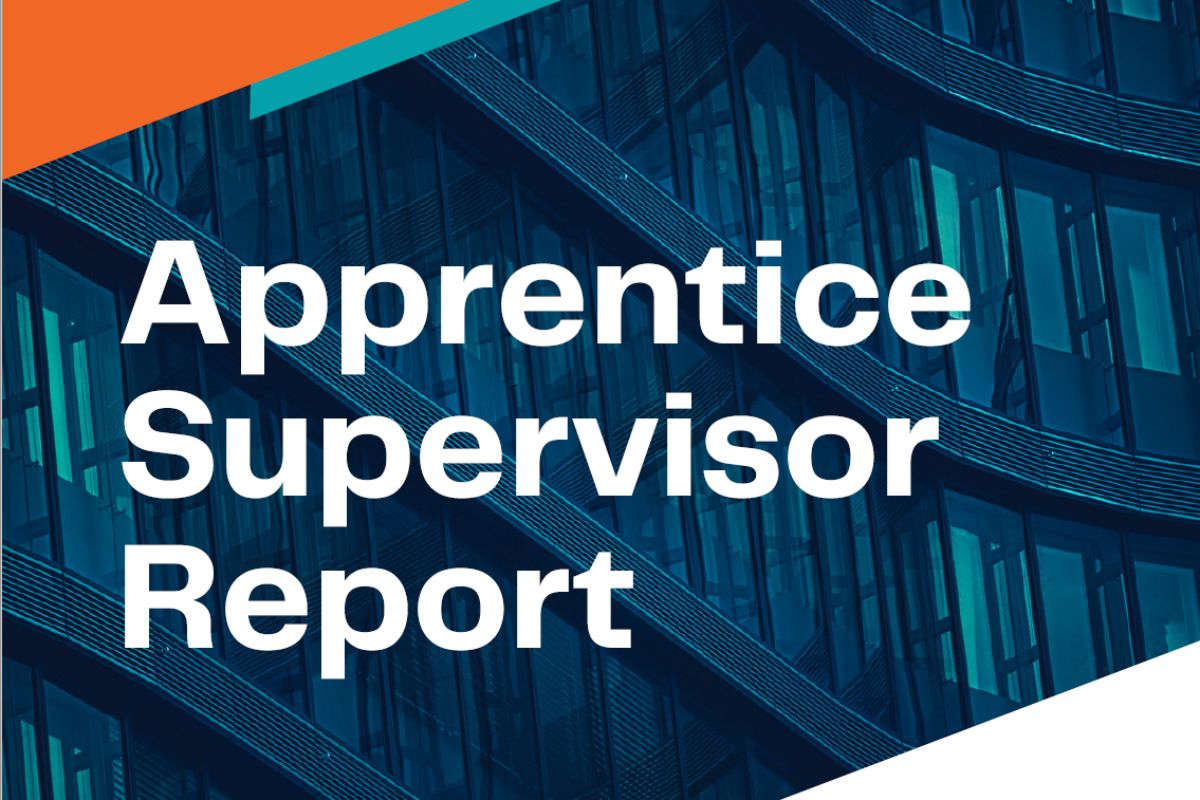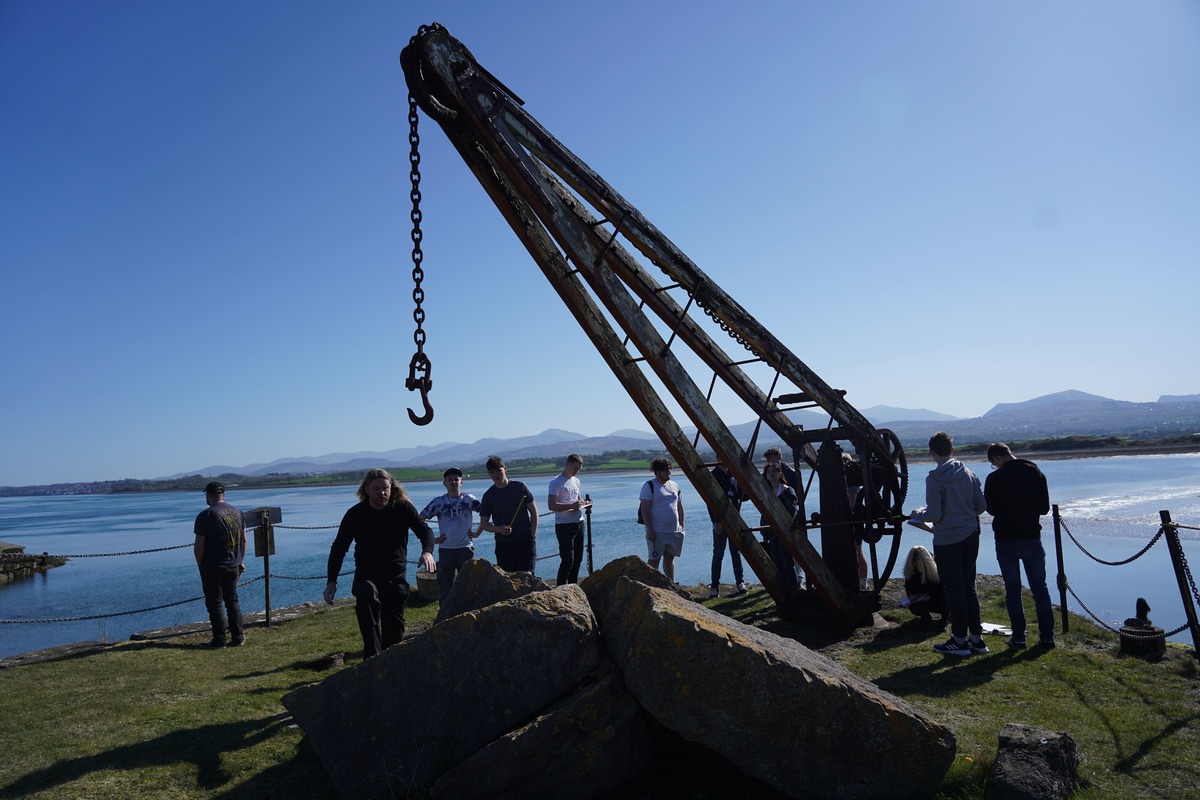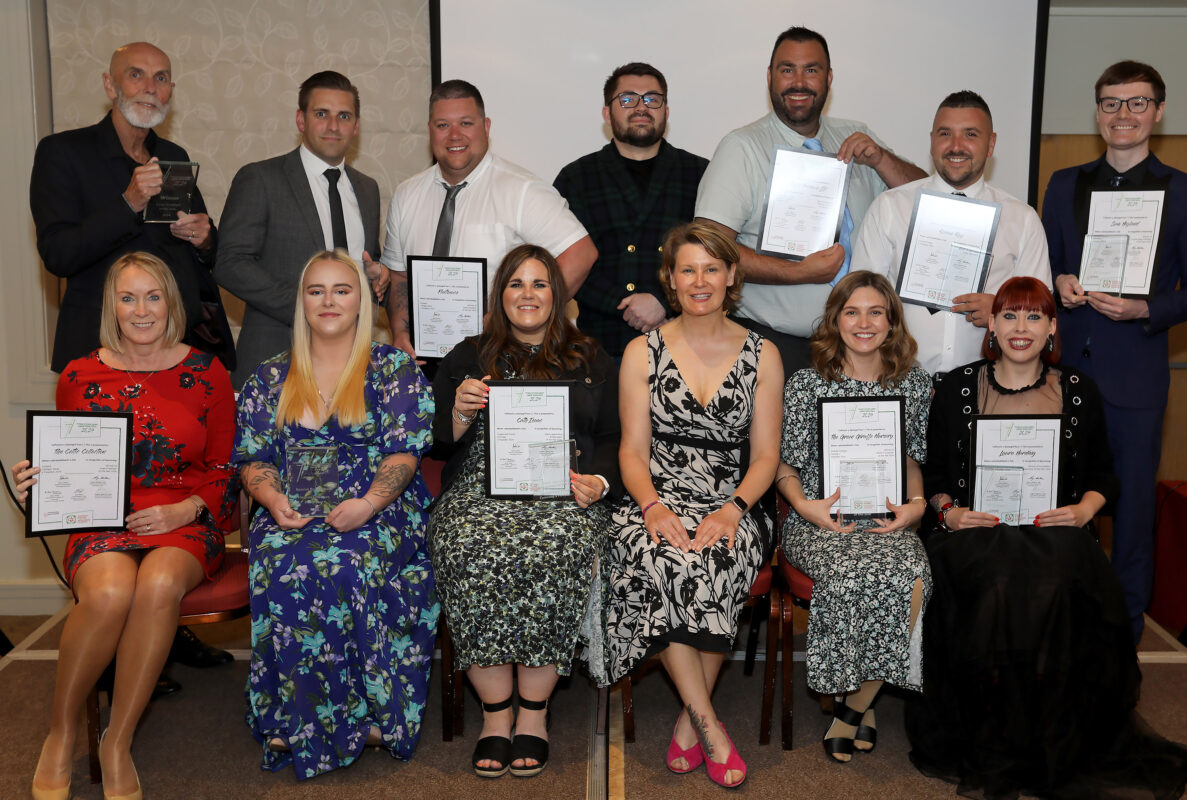A Reflection on Gender Equity in TVET and Youth Empowerment | The 2024 WorldSkills Conference in Lyon

The WorldSkills 2024 Conference in Lyon was an inspiring, dynamic gathering of experts, thought leaders and change-makers committed to addressing the evolving challenges and opportunities in technical and vocational education and training (TVET). As the Executive Director of the Global Apprenticeship Network (GAN), I had the privilege of moderating a key session on Gender Equity in TVET and participating as a panelist in a thought-provoking discussion on Youth Empowerment.
The conference occurred against critical shifts in the global economy and labor market, where skills development is pivotal in building resilience and sustainability. The conference’s overarching theme, “Moving TVET to the Top of the Global Agenda,” echoed GAN’s mission to foster inclusive apprenticeships and skills development that drive meaningful employment opportunities across all regions.
Gender Equity in TVET: Breaking Barriers and Expanding Access
As the moderator of the session on Gender Equity in TVET, I was reminded of the tremendous strides we have made over the years and the significant challenges that remain. Gender disparities in TVET, particularly in sectors traditionally dominated by men, persist in many regions. Women and girls continue to face barriers ranging from societal norms to institutional biases, which limit their access to high-quality technical education and vocational training. These barriers have a cascading effect on their career prospects, wages, and overall economic empowerment.
During the session, we had the opportunity to hear from a diverse panel of voices, including government representatives, private sector leaders, and youth advocates, all working at the forefront of gender equity initiatives in TVET. One of the most impactful discussions revolved around making TVET more attractive and accessible to young women, particularly in industries where their representation remains low. And, how to retain female talent, especially in the STEM fields. On the flip side, the beauty sector and healthcare industries also can do much more to attract young men in these fields.
A key point of consensus was that gender stereotypes strongly influence a young person’s decision to choose a pathway. Several panelists shared powerful stories of how mentorship programs and the visibility of women leaders in certain fields had transformed perceptions and motivated more girls to explore TVET pathways. One of the panelists, a WorldSkills Champion, spoke about her journey in the culinary world, crossing two countries and cultural contexts – starting in Barbados where gender is not an issue, to Canada where women are underrepresented in this field. Her story resonated deeply with the audience, reinforcing the idea that personal success stories can have far-reaching impacts on broader societal change.
The session also touched on the importance of policy frameworks that support gender equity. While many countries have made strides in promoting women’s participation in TVET, there is still much work to be done to ensure that policies are not only in place but are effectively implemented. The panel emphasized the need for governments to allocate resources to gender-focused initiatives, provide incentives for companies to hire female apprentices, and create safer, more inclusive training environments.
One of the recurring themes throughout the conversation was the need for multi-stakeholder collaboration. Achieving gender equity in TVET cannot be the work of governments alone—it requires coordinated efforts across the private sector, educational institutions, non-governmental organizations, and international organizations like GAN. Together, we must push for systemic change that not only encourages more women to enter TVET but also ensures that they have equal opportunities for growth and leadership within these industries.
As I moderated the discussion, I felt a profound sense of optimism that, although the road ahead may be long, we are collectively moving in the right direction. The passion and commitment exhibited by the participants at this session reinforced GAN’s belief that through collaboration, we can create a more inclusive and equitable future for women in TVET.
Youth Empowerment: Catalyzing the Next Generation of Leaders
In the session on Youth Empowerment, where I had the honor of being a panelist, the energy in the room was palpable. Today’s young people face a rapidly changing world, marked by technological advances, economic uncertainty, and complex social issues. Yet, they also represent the greatest source of innovation, resilience, and potential. Empowering youth through skills development and apprenticeships is critical to unlocking that potential and addressing the global skills gap.
The discussion centered on how TVET can serve as a powerful vehicle for youth empowerment, particularly in regions with high unemployment and underemployment rates. One of the central questions posed to the panel was how to ensure that young people, especially those from marginalized communities, have access to the skills and opportunities they need to succeed in the workforce.
As a panelist, I emphasized the role of apprenticeships as a bridge between education and employment. Apprenticeships not only provide young people with hands-on experience in real-world work environments but also help them develop the soft skills—such as communication, problem-solving, and teamwork—that are increasingly valued by employers. Importantly, apprenticeships also offer a pathway for young people to learn cutting-edge skills in emerging fields such as cybersecurity, digital and green sectors.
One of the highlights of the panel was the discussion on youth empowerment and agency. It is not enough to create opportunities for young people—we must also empower them to shape their futures. A particularly moving part of the session came from young apprentices sharing perspectives from a developing country, a country amid war, and another grappling with a disability – all sharing their journeys of overcoming significant obstacles to pursue their passions. These stories of resilience and determination were reminders of the immense potential that lies within every young person when allowed to succeed. These words serve as a powerful call to action for all stakeholders present to prioritize inclusive and accessible TVET pathways that reach the most vulnerable youth.
Throughout the discussion, it was clear that the global community must do more to align education and training with the needs of the labor market. In many regions, there is still a disconnect between the skills taught in TVET programs and the skills employers require. Strengthening partnerships between the private sector and educational institutions is essential to ensuring that young people have the competencies needed for the jobs of tomorrow.
The Path Forward: Building a More Inclusive Future for All

The WorldSkills 2024 Conference underscored the importance of collaborative action in driving systemic change in TVET. From gender equity to youth empowerment, the discussions highlighted the need for an inclusive approach that addresses the unique barriers faced by women, girls, and marginalized youth in accessing and thriving in TVET.
As the Executive Director of GAN, I left the conference with a renewed sense of purpose and determination. The conversations we had in Lyon reinforced GAN’s commitment to advancing inclusive apprenticeships and ensuring that young people from all backgrounds have the skills, opportunities, and support they need to succeed in the workforce. Our work at GAN is more important than ever, as the global demand for skilled workers continues to grow and the challenges of gender inequality and youth unemployment persist.
Looking ahead, GAN will continue to work closely with the private sector and international organizations to promote gender-responsive policies, expand access to quality apprenticeships, and create sustainable pathways to employment for young people. The insights and inspiration from the WorldSkills 2024 Conference will undoubtedly guide our efforts as we build a more inclusive, equitable, and prosperous future for all.
In closing, I would like to express my heartfelt gratitude to the WorldSkills team for organizing such an impactful event and to all the participants for their invaluable contributions. Together, we are moving TVET to the top of the global agenda, and together, we will create a world where every individual can realize their full potential.
By Kathryn Rowan, Executive Director, GAN Global











Responses